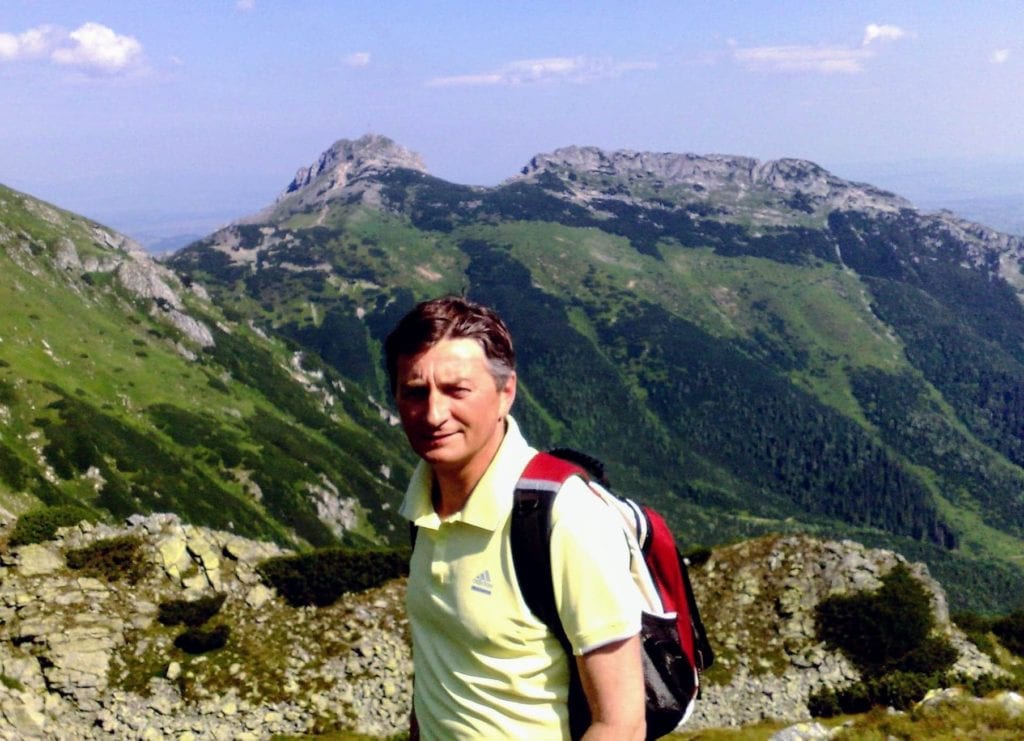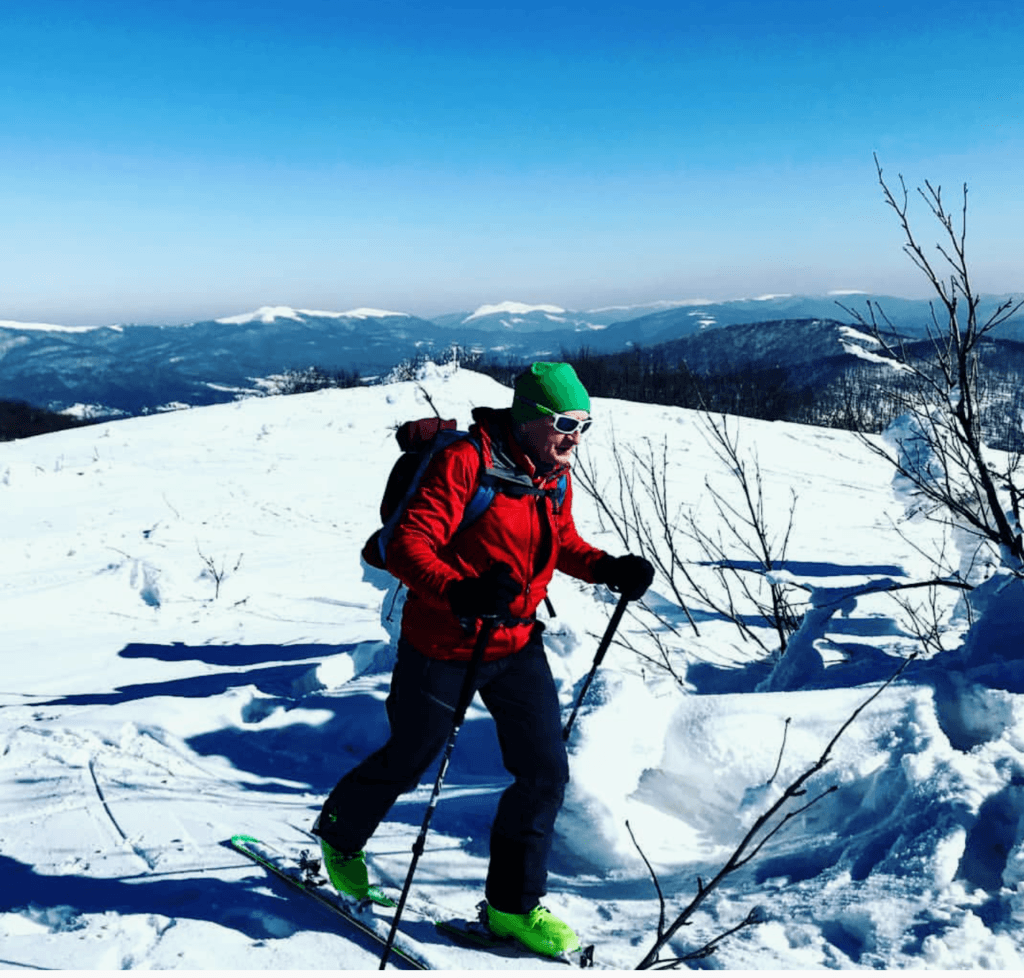On the occasion of the 25th edition of the Carpathian Europe Conference, organized as part of the Economic Forum in Krynica, the Sejm publishing house has prepared a book that is a collection of thoughts of politicians and scholars with a foreword by the creator of the initiative Marek Kuchcinski.
Foreword
In the mountains, we feel no boundaries. W Mountains one seeks freedom. In the mountains, of course, there is competition, but it concerns the set goal, not the opponent. This goal for humans is first of all, the search for harmony, balance and a dignified life in our rather complicated geopolitical space of Central Europe. Thus, if man naturally strives for sustainable development, seeking a balance between economics and ecology that would inspire creative action - he strengthens his ability to think in terms of multiple generations. And entire communities, "conserving" the heritage of their ancestors, are building a sense of national consciousness of national consciousness based more on an ethical dimension than on economic growth or the satisfaction of basic needs. Closely connected with such an attitude is concern for preservation of the multiculturalism and biodiversity of the Carpathians, clean air or for the most strategic resource, which will be drinking water in the future. Demolition is easy and quick, construction - slow and requiring cooperation. It is in terms of the future of generations that each of us should be oriented for cooperation with other people. We need time and space to build mutual trust. As equals with equals and free with free.
The idea of a "Europe of the Carpathians" draws precisely from this kind of thinking. It draws on the potential of this unique space, stretching over a thousand kilometers in an arc touching the foothills of the Alps in eastern Austria and the Balkans in southern Europe. An arc that for centuries has made possible the cooperation of nations and states that have formed sometimes great powers. It is also the native land of many extraordinary people, who have had an enormous impact on the shape of our civilization, such as Henri Coandă of Bucharest or Sergei Korolov of Zhitomir, whose jet ships overcame the the limit of sound and earth's gravity; like Ignacy Lukasiewicz of Podkarpacie or Jan Szczepanik from Mościska, known as the Polish Edison - respectively, pioneers of the oil industry and color photography, weaving and television; like Nikola Tesla, a brilliant Croatian Serb - the man who tamed electricity, constructing an electric motor and a solar battery; like Otto Wichterle, a Czech Prościejv chemist, without whose plastics it would be difficult to imagine imagine today's clothing; or Albert Szent-Györgyi of Budapest, the discoverer of vitamins C and P.
We would not have the famous cube Rubik's cube if it hadn't been invented by Hungarian architect Rubik Ernő, we wouldn't have the Pulitzer Prize either, if it had not been established in the US by Hungarian Joseph Pulitzer. We would not we would have a typewriter for the blind if it had not been created by Kempelen Farkas of Bratislava. And we still have great artists whose works enrich the the spiritual lives of people around the globe. Among them are brilliant composers: Frédéric Chopin, Béla Bartók, Ferenc Liszt, Antonín Dvořák, Moravian-born Gustav Mahler. Moravia, Gustav Mahler, Zoltán Kodály, and contemporary composers Henryk Mikołaj Górecki and Krzysztof Penderecki. World prominence was also achieved by artists of the visual arts: Kazimir Malevich, Andy Warhol, Constantin Brâncuși. World literature was permanently enriched by writers and thinkers from the Carpathian region writers and thinkers: Martin Buber, Paul Celan, Mircea Eliade, Zbigniew Herbert, Eugène Ionesco, Stanislav Lem, Sándor Márai, Bruno Schulz and many others, such as those living in the Czech Republic Franz Kafka, Jaroslav Hašek, Bohumil Hrabal and Milan Kundera. We have heroes of recent history such as József Antall and Henryk Slawik, or martyrs like Ryszard Siwiec, Jan Palach, Sándor Bauer or the last political prisoner of the Gulag Vasily Stus, for whom human freedom of man was the greatest value. Above all, let us remember that from Wadowice, a city located at the foot of the Carpathian Mountains, came Saint John Paul II - the creator of the concept and promoter of the civilization of love, an invaluable project that could overcome the numerous conflicts shaking humanity in the 21st century, a project derived from the values that guide the lives of the people of the Carpathian region.
Great is the intellectual potential of our region, let us just recall the following fact - the nations existing in the space from the Baltic to the Adriatic, have offered the world 56 laureates of the Nobel Prize.
The conference "Europe of the Carpathians" has for years a meeting and discussion place for people who want to talk freely about both the preserving the unique wealth of culture, nature and ways of farming, as well as and about working on further initiatives for the development of the countries of our region in a world of global competition, about the Trilateral Initiative; about NATO and security; about the European Union in the context of the problems, challenges and opportunities which it is currently facing in many areas of its activity; about axiological issues of our civilization; strategies and economic development economic development; new prospects for scientific cooperation among the Carpathian countries - these just some of the topics discussed at our conferences.
The Conference Europe of the Carpathians has already had its 25th edition. Many of its participants, including representatives of European parliaments, got to know the countries of our region through its prism - an open agora, a place for meetings and discussions, setting goals and seeking agreements. Carpathian Europe arouses curiosity about its neighbors and it satisfies this curiosity during subsequent meetings in Krasiczyn, Regietów and Krynica.




